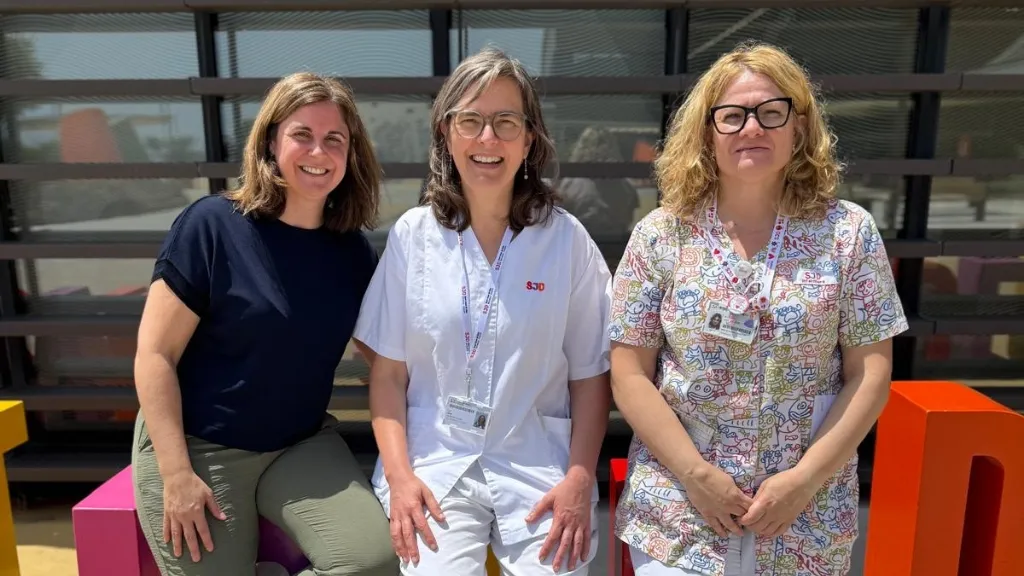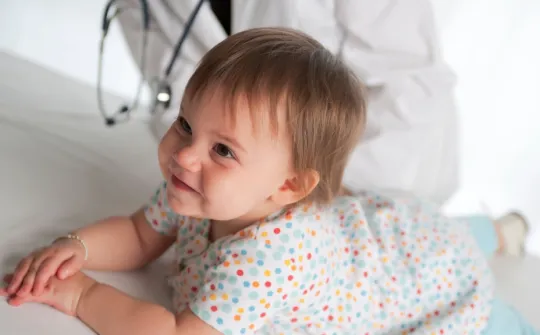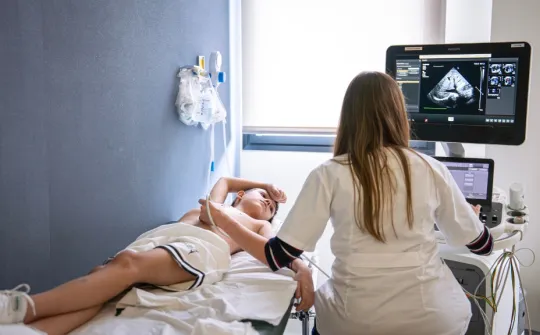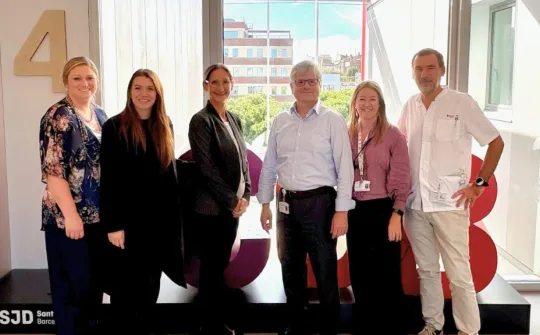The SJD Barcelona Children's Hospital is taking part in a pilot project on neonatal screening to detect over 300 rare diseases
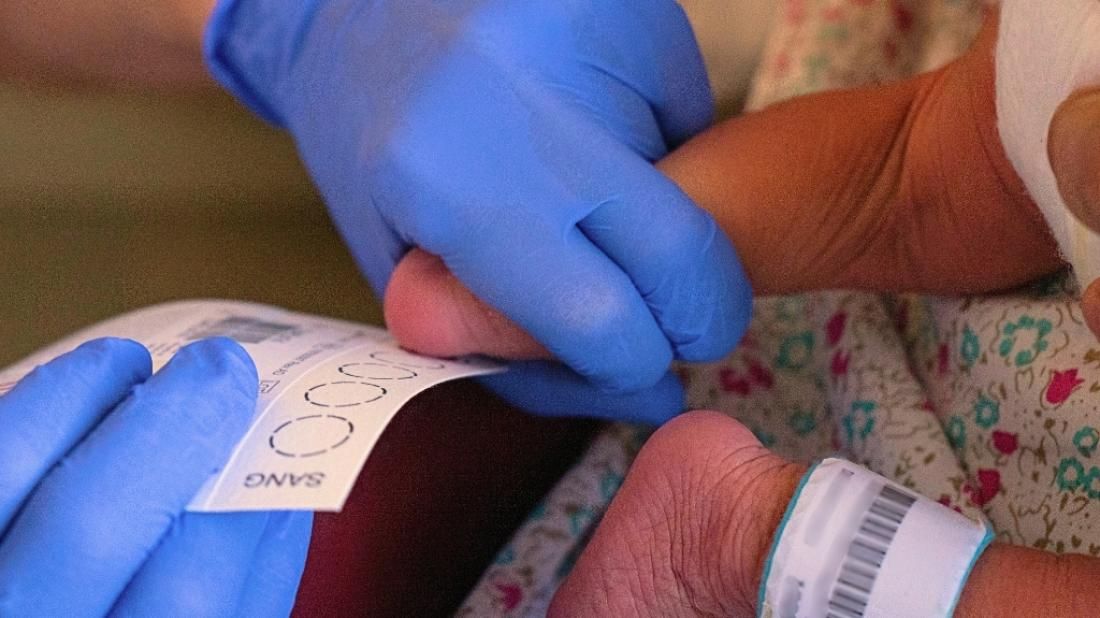
The project, called CrinGenES, will involve over 70 medical professionals, who will conduct the tests on 2,500 newborns from nine autonomous communities, with the aim of detecting more than 300 rare diseases.
Alongside Hospital Clinic Barcelona-IDIBAPS, the SJD Barcelona Children's Hospital is taking part in the CrinGenES project, a pioneering initiative that aims to allow the detection of more than 300 rare diseases in newborns through neonatal genomic screening. More than 70 healthcare professionals from various fields—including neonatology, genetics, pediatrics, laboratory, nursing and public health—will bring the project to life with a cohort of 2,500 newborns from nine different autonomous communities (Galicia, Madrid, Andalusia, Aragon, Asturias, Catalonia, La Rioja, Murcia and Valencia).
CrinGenES aims to complement conventional neonatal screening with genomic analysis using the same routinely collected blood sample, thereby increasing the number of diseases that are screened for – including those for which there are existing therapeutic treatment options but currently no known biochemical detection markers. A whole genome sequence will be conducted on 2,500 newborns over the course of around two years, rigorously selecting those genes that are associated with over 300 rare diseases with a pediatric onset that have an available treatment option or early intervention programme.
In Catalonia, family training will be offered at the Maternity Ward at Hospital Clinic and the SJD Barcelona Children's Hospital, under the leadership of Dr Ana Alarcón, Head of the Neonatal Department at BCNatal (SJD Barcelona Children's Hospital and Hospital Clinic). Positive cases will be referred to expert units in the Network of Units of Clinical Expertise (XUECS), led by Dr Carlos Ferrer (CAPSBE) for genetic counselling.
Alarcón notes that, between the two facilities making up BCNatal, 300 newborns will take part in the project. The Head of Neonatology also details the entire testing pipeline, as well as the staff involved: ‘A huge variety of healthcare staff are involved here, and we all work together to get results back in less than one month. We also offer exhaustive follow-up to every case, especially if anything returns positive.’
Expanding neonatal screening
Screening, or a blood spot test, is a secondary public health prevention strategy that allows for the detection of severe congenital diseases by analysing a blood sample taken from the newborn's heel. At present, between 11 and 44 diseases are detected using this technique in Spain, varying between autonomous communities. However, there are around 7,000 rare diseases, the majority of which are genetic. As such, advances in genetic screening and treatment opens the doors to early detection of more of these rare diseases. Ana Alarcón explains that ‘the aim with diagnosing these diseases is to detect them before symptoms arise, meaning some kind of treatment or specific monitoring can be implemented to help improve the prognosis.’
Encarna Guillén, Head of the Genetics Department and Chief Strategic Officer of the Únicas SJD project at the SJD Barcelona Children's Hospital, recognises the value of the CrinGenES project. ‘Comparatively speaking, going from a 40-disease screening to one detecting 300 of them is a huge step up in quality.’ In this regard, Guillén stresses that, beyond offering early diagnosis and, consequently, more effective treatment, ‘it also allows us to study underlying genetic causes and provide counselling to future families.’
At the vanguard of research
CrinGenES was made possible thanks to a grant of 2.4 million Euros from the Carlos III Health Institute (ISCIII) with Next Generation funding for 2025 and 2026. The project is headed by Dr María Luz Couce (Health Research Institute of Santiago de Compostela) and Dr Miguel Ángel Moreno Pelayo (Ramon y Cajal Health Research Institute). Other participants include the Spanish Federation of Rare Diseases (FEDER), specialists in economic assessment and experts in bioethics, and the project also boasts the support of the Ministry of Health from each participating autonomous community.
In Catalonia, the project is headed by Dr Judit García Villoria, Head of the Congenital Metabolic Errors Section-IBC in the Biochemistry and Molecular Genetics Service, part of the Biomedical Diagnostic Center (CDB) at Hospital Clinic, and researcher in the translational research group in new therapeutic and diagnostic strategies in liver diseases at IDIBAPS.
This project puts participating sites at the vanguard of European research and the implementation of neonatal genomic screening programmes, with the aim of achieving early diagnosis and treatment of rare diseases in infancy.
